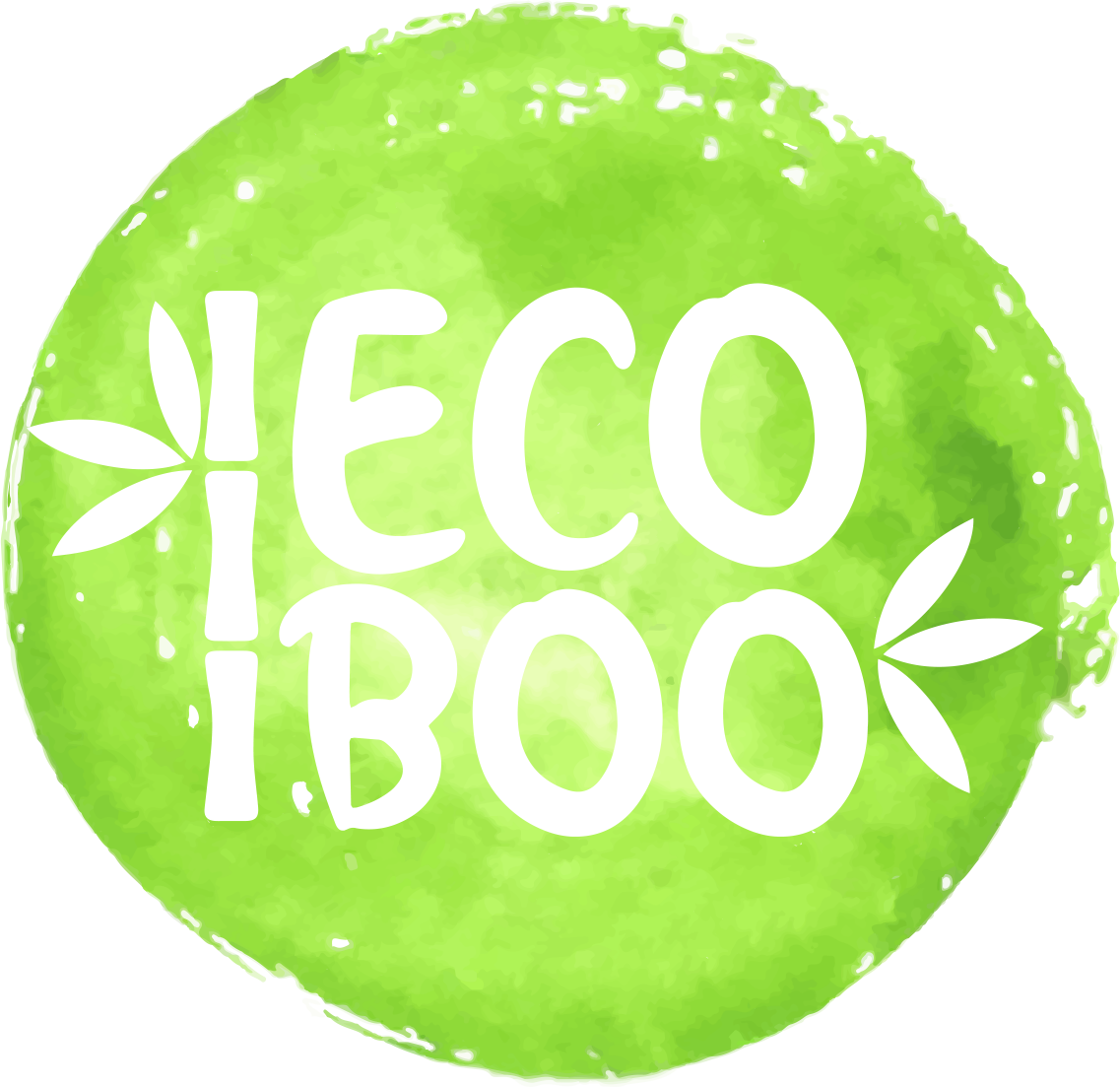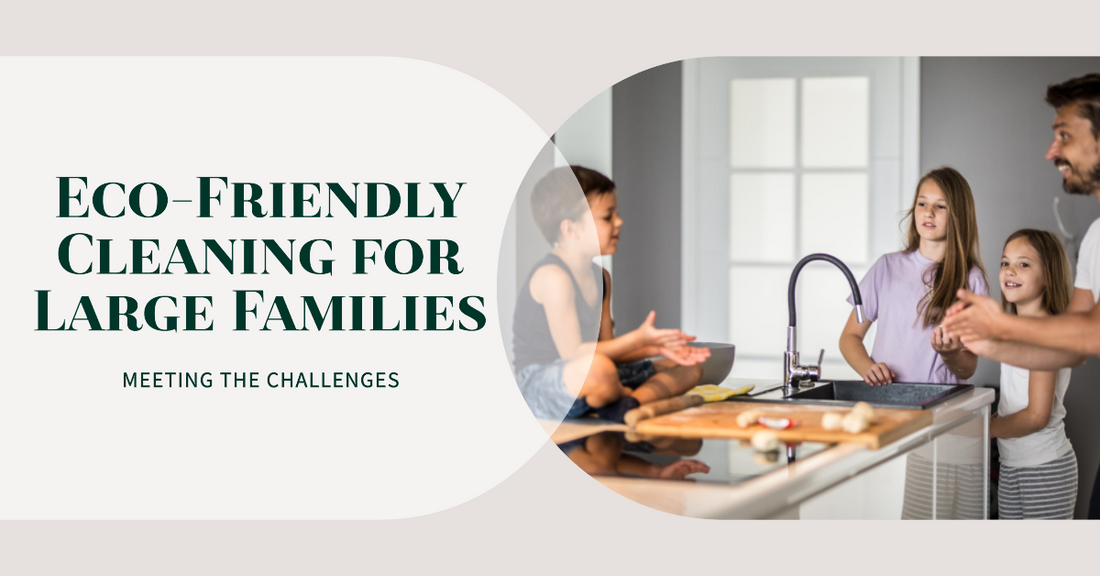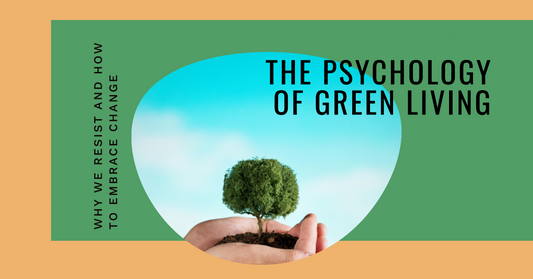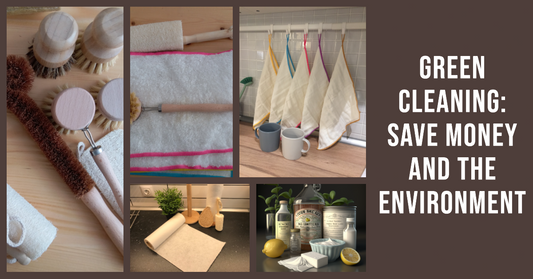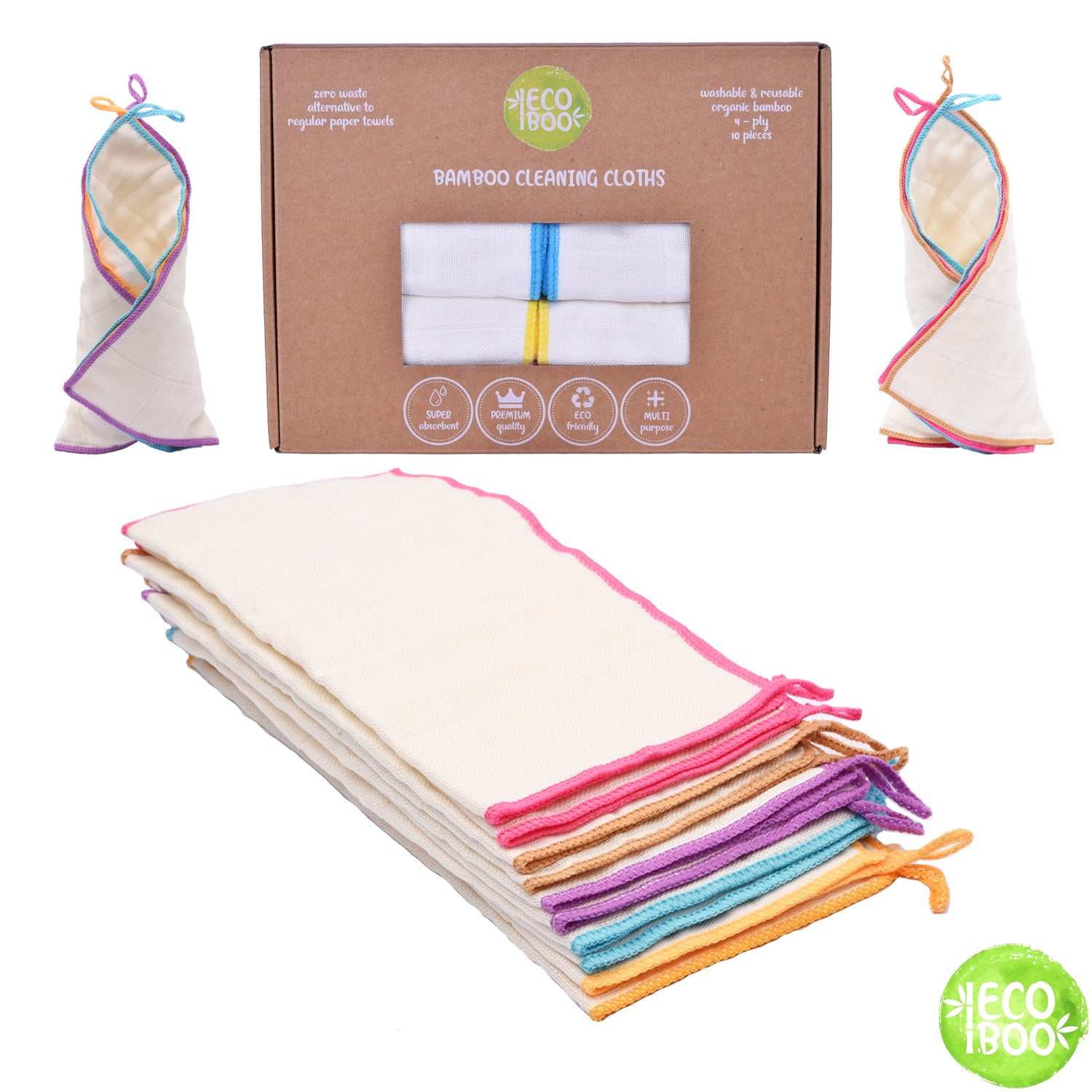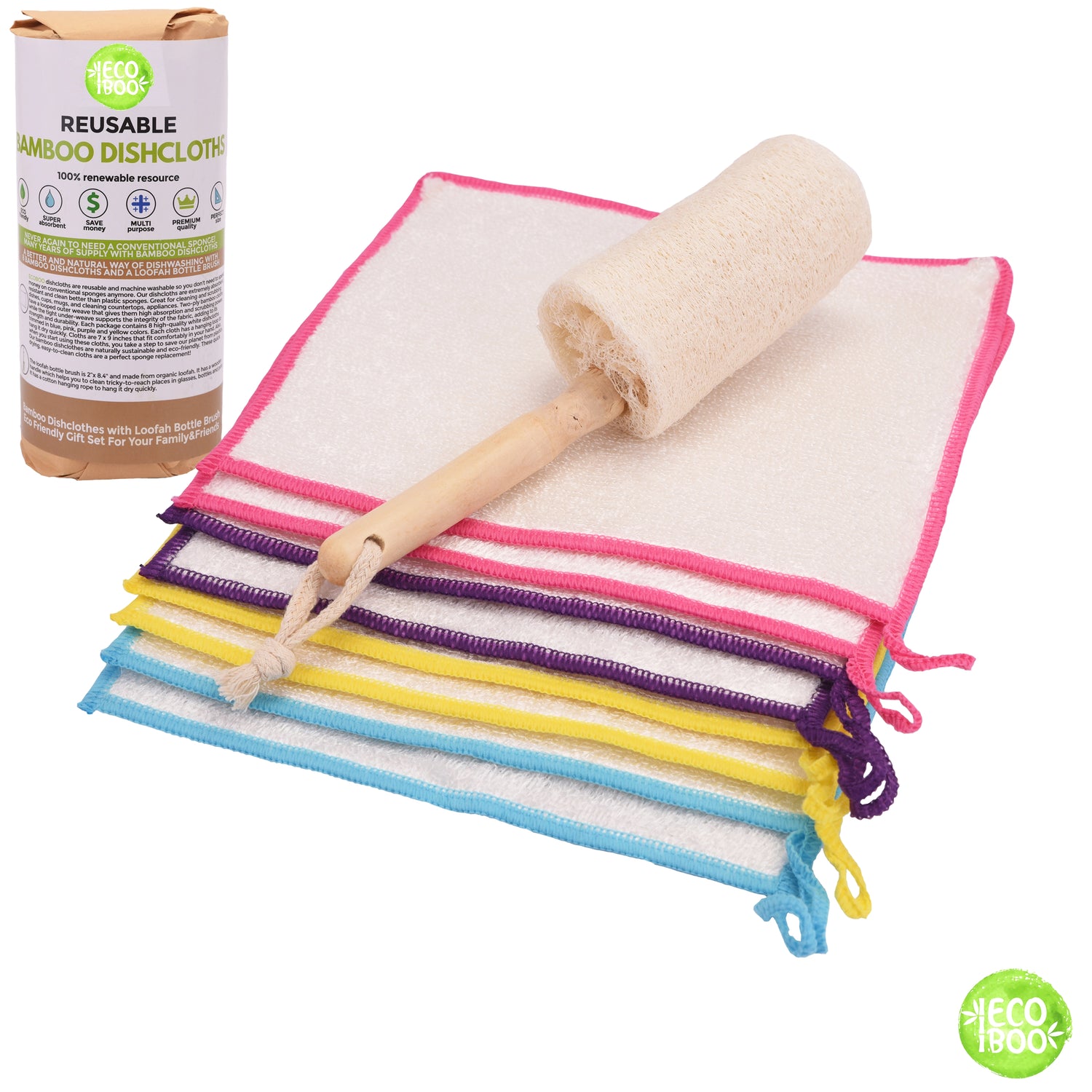I. Introduction
Large families often find joy in their lively households, with laughter echoing through the corridors and multiple feet pattering around.
However, with this vivacity comes a set of unique challenges, especially when it comes to keeping the house clean.
Picture this: twice the number of dishes, more clothes in the laundry basket, and seemingly endless clutter.
While the instinct might be to reach for the quickest cleaning solutions, there lies a pertinent question - at what environmental cost?
The modern world is becoming increasingly conscious of our planet's well-being, and it is vital that families, regardless of size, are part of this eco-conscious movement.
Here, we delve into the significance of adopting eco-friendly cleaning practices, especially for large families.
II. The Environmental Footprint of Traditional Cleaning
When you think of cleaning, you might envision sparkling surfaces and fresh scents.
But what's often overlooked is the environmental footprint of the cleaning products and methods we commonly use.
From the chemical compositions of these products to their plastic packaging, traditional cleaning has a more profound impact on the planet than we might think.
For large families, this impact is even more significant.
More people in a household typically mean more cleaning, and therefore, more consumption of these products.
Imagine the number of plastic bottles thrown away and the gallons of chemical-laden liquids washed down the drain.
The reality is, the larger the family, the larger the environmental footprint—unless conscious choices are made.
III. Understanding the Needs of Large Families

Any parent or guardian from a large family will attest to the fact that messes are a daily affair.
Breakfast spills, craft projects gone awry, mud tracks from the garden – the list is endless.
Naturally, with frequent messes come frequent cleaning needs.
Large families often gravitate towards bulk-buying cleaning products or those that promise quick fixes.
After all, when managing the demands of a bustling household, convenience is king.
However, there's a tightrope to walk between this convenience and sustainability.
While it might seem easier to use disposable wipes for that juice spill or reach for the heavily-advertised, chemical-rich cleaner to tackle the bathroom tiles, the long-term environmental costs of such choices can't be ignored.
As we venture further into this discussion, we'll explore how large families can find a harmonious balance between these two crucial aspects – ensuring a clean home while upholding a commitment to the planet.
IV. Bulk Buying and Refilling Stations
In a consumer-driven world, our shopping habits play a significant role in determining our environmental footprint.
For large families, the regular purchasing of cleaning supplies can quickly amount to significant waste, especially in terms of packaging.
Enter bulk buying – a solution that not only caters to the substantial needs of big households but also promises a more sustainable approach.
- The advantages of buying eco-friendly products in bulk: When you buy in bulk, you significantly reduce the need for individual packaging, which translates to less plastic waste ending up in landfills. Plus, it often comes out to be more economical in the long run. For eco-conscious families, opting for eco-friendly bulk products ensures they're not compromising their commitment to the environment.
- Local refill stations: Think of refill stations as the future of sustainable shopping. By bringing your own containers to local stores that offer bulk refilling options, you cut down on packaging waste. It’s a win-win: you get the amount you need without the excess waste. For large families, this is an opportunity to play an active role in reducing single-use plastics and championing a circular economy.
V. DIY Cleaning Solutions for Common Messes

While store-bought cleaners might offer convenience, the DIY route holds its own set of advantages, especially for households on a mission to stay green.
- Introduction to homemade cleaning recipes: From vinegar and baking soda concoctions that tackle stubborn stains to lemon-infused solutions that leave rooms smelling fresh, homemade cleaning recipes are a treasure trove. Not only are they made from natural ingredients, reducing the risk of harmful chemicals in homes, but they also allow families to utilize ingredients they already have.
- The cost-effective and eco-friendly nature of these solutions: Commercial cleaning products often come with a hefty price tag. For large families, the cumulative cost can be substantial. DIY solutions, on the other hand, are remarkably cost-effective. Additionally, by sidestepping the harmful chemicals often found in conventional cleaning products, families can ensure a safer and more eco-friendly home environment.
VI. Incorporating Reusable Cleaning Tools
Disposable cleaning tools might seem convenient, but their continuous need for replacement has both financial and environmental implications.
- Swapping paper towels for cloth rags: Paper towels, though handy, contribute to a significant amount of waste, especially in large households where spills are frequent. By switching to cloth rags—perhaps upcycled from old T-shirts or linens—families can drastically reduce this waste. They're washable, reusable, and highly efficient.
- Choosing durable, long-lasting cleaning tools: Investing in high-quality, durable tools means fewer replacements over time. Whether it's a sturdy scrub brush or a mop designed to last years, making mindful choices in tools is both an economical and sustainable decision.
- The financial and environmental benefits of reusable tools: For the budget-conscious, reusables offer undeniable savings over time. Environmentally, they reduce the constant cycle of buying, using, and discarding, which is especially significant for larger families with more substantial cleaning demands.
VII. Efficient Laundry Practices for Big Loads

For large families, the laundry room is often one of the most frequently used spaces in the home.
With bigger loads and more frequent washing, it's crucial to adopt practices that are not only effective but also environmentally friendly.
- Eco-friendly detergents and their benefits: Traditional detergents can contain harmful chemicals that can be detrimental to the environment once they flow down the drain. Eco-friendly detergents, on the other hand, use natural ingredients that break down more easily and are less harmful to aquatic ecosystems. They are effective cleaners, gentle on fabrics, and kinder to the planet.
- Tips for reducing water and energy consumption: Running full loads instead of multiple smaller ones, using cold water for washing, and ensuring regular maintenance of washing machines can significantly reduce water and energy usage. Energy-efficient washing machines, though a bit pricier upfront, can also save both energy and water in the long run.
- Line drying: An old-fashioned, yet sustainable method: Electric dryers consume a considerable amount of energy. The sun and wind, however, are free and leave a zero-carbon footprint. By line-drying clothes, families can save on energy bills and reduce carbon emissions. Plus, clothes tend to last longer when they're air-dried.
VIII. Waste Reduction and Recycling
Managing waste can be a more significant challenge in larger households.
But with more hands on deck, there's also a greater opportunity for efficient and effective waste management.
- Emphasizing the need for waste sorting in large households: Proper waste segregation is vital for effective recycling. Having designated bins for paper, plastic, metal, and glass ensures that recyclables don't end up in landfills. For big families, this can mean significant waste diversion.
- Introducing composting for organic waste: Kitchen scraps, yard waste, and other organic materials can be composted to create nutrient-rich soil. Large families can turn significant amounts of organic waste into valuable compost, which can be used in gardens or donated to community projects.
- Importance of proper disposal and recycling: Beyond just sorting, understanding where and how to properly dispose of various waste types—like electronics, batteries, or hazardous materials—ensures they don't harm the environment or human health.
IX. Getting the Whole Family Involved
Eco-friendly cleaning is not just about products and methods—it's about fostering a mindset.
And when the whole family is on board, sustainability becomes a way of life.
- Assigning eco-friendly chores to family members: Sharing responsibilities means that chores are not just left to one person. Assign tasks like sorting recycling, composting, or line drying to different family members, ensuring everyone plays a part in the household's green efforts.
- Educating kids on the importance of sustainable practices: Children are the next generation of stewards for our planet. Incorporate learning into cleaning by explaining why certain practices are eco-friendly and how they help protect the environment.
- Making cleaning fun and educational: Turn cleaning and recycling into games or challenges. Who can sort recyclables the fastest? Who can come up with the best DIY cleaning solution? Making sustainability fun encourages everyone, especially kids, to be more invested in the process.
X. Choosing Eco-Friendly Appliances

In the context of cleaning and maintaining a home, appliances play a pivotal role.
Selecting the right, environmentally friendly equipment can significantly reduce a household's environmental footprint.
- The benefits of energy-efficient cleaning appliances: Energy-efficient appliances use less power, reducing carbon emissions and lowering utility bills. They often come with advanced features designed to use resources (like water) more judiciously, ensuring minimal waste.
-
Recommendations for eco-friendly washers, dryers, and dishwashers:
- Washers: Look for models that have a high Energy Star rating. These units often come with settings that allow for cold water washing, reducing the energy used to heat water.
- Dryers: Again, the Energy Star rating is crucial. Also, models with moisture sensors can prevent over-drying, saving energy.
- Dishwashers: Modern dishwashers can often clean effectively with less water and energy than hand washing. Opt for models that have eco-modes or water-saving features.
XI. Case Studies: Success Stories of Large Eco-Friendly Families
Stories of real-life families can inspire others and provide actionable insights.
Here, we can delve into a few tales of large families who've seamlessly integrated green practices into their daily routines.
- Real-life examples of large families mastering the art of green cleaning: Detail the journey of a few families, their challenges, the solutions they found, and the impact of their choices. This could range from DIY cleaning solutions, waste reduction strategies, or even sustainable home renovations.
- Lessons learned and tips from these families: Extract the key takeaways from each family's experience. Maybe one family mastered the art of composting, while another found innovative ways to repurpose old cleaning tools. Sharing these gems of wisdom can help readers navigate their eco-friendly journey with more clarity.
XII. Conclusion
The culmination of the blog should drive home the core message and inspire action.
- Reiterating the importance of eco-friendly cleaning for large families: Highlight the compounded environmental impact large families can have, making their eco-friendly shifts even more significant. By choosing sustainable methods, they're not just cleaning their homes but also playing a part in cleaning the planet.
- A call to action for families to take the green cleaning challenge: Encourage readers, irrespective of their family size, to embrace at least one or two eco-friendly cleaning practices mentioned in the blog. By collectively making small changes, society can bring about a considerable positive environmental shift.
